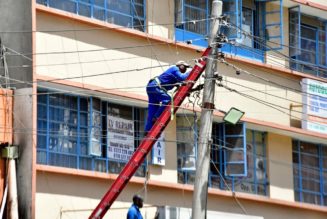Capital Markets
Williamson share price falls ahead of dividend closure
Tuesday August 22 2023

A tea plucking machine in operation at a tea estate in Kericho. FILE PHOTO | VITALIS KIMUTAI | NMG
Agricultural firm Williamson Tea Kenya’s share price fell 4.2 percent to close at Sh233.5 on Monday ahead of the closure of the books for the dividend on Wednesday.
The company’s stock had rallied to hit a 52-week high of Sh275 on August 11 after it raised its dividend payout to a record of Sh30 per share in the year ended March.
Read: Williamson Tea stock rallies to 52-week high on dividend
The Nairobi Securities Exchange-listed firm had paid a dividend of Sh20 per share the year earlier. The decline in the share price in recent days is an indication that investors expect the stock to slide further after the dividend cutoff date.
A significant decline in a company’s share price after book closure can result in paper losses large enough to surpass the value of the dividend, especially for investors who recently bought the stock as it rallied.
Williamson Tea’s share price had traded below the Sh200 mark for the past seven years until the recent announcement of its full-year results.
Those who have been selling their holdings in the past weeks have booked substantial gains but will miss out on the dividend payout on September 4.
Williamson Tea is among the agricultural firms benefiting from the weakening of the Kenya shilling.
The growers of tea, coffee and other commodities are paid in US dollars and euros for their exports, resulting in major gains in local currency terms.
Williamson Tea posted a 4.5 percent growth in profitability for the year ended in March 2023, with net earnings rising to Sh564.3 million.
The performance, however, came against an 11 percent drop in crop production to 15.1 million kilos of tea, while the volumes of tea sold decreased from 16.2 million kilos to 16 million kilos.
The grower marked some respite from an increase in average tea prices, which rose from Sh216 per kilogramme to Sh257.
Read: Williamson gets 60 per cent of tea from smallholder growers
Despite the company’s improved performance in the review period, the firm warned of headwinds, including the increased cost of production from inflation, electricity and security.









